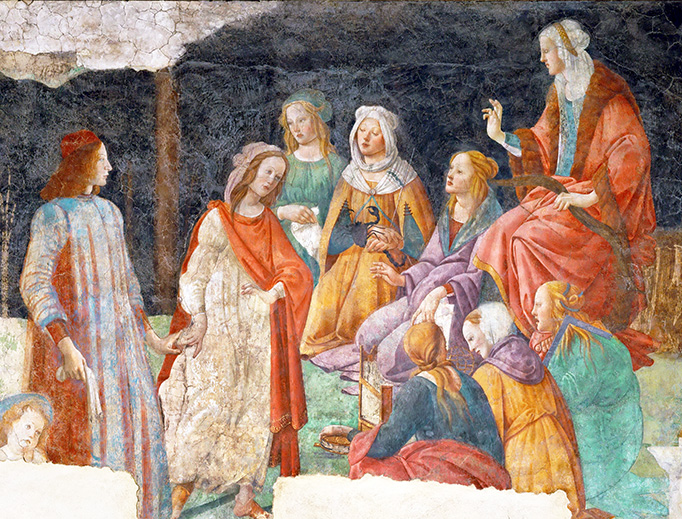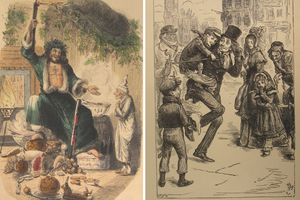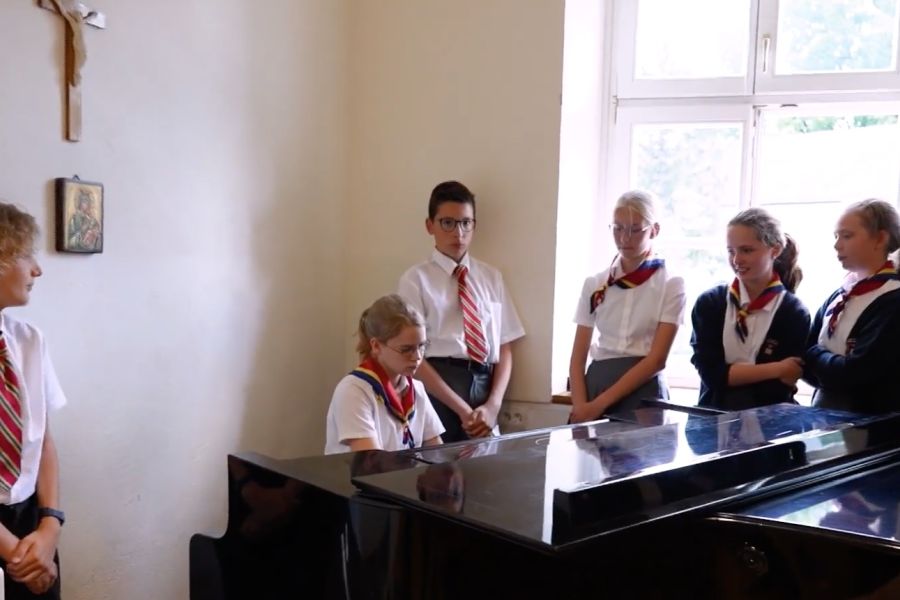Teaching Our Children the Classics
At long last, Christian and other tradition-oriented professors have a real alternative to the radical secularism that is rampant in the academy

As a new school year begins, it is timely to remind ourselves that western civilization is a specifically Christian inheritance that it is the duty of parents to pass on to their children. Indeed, a failure on the part of parents to nourish their children with the cultural fruits of Christendom is tantamount to starving them of the cultural and spiritual sustenance that they need to survive as Catholics in a darkly secular world. To put the matter bluntly, we fail to feed our children this healthy diet of Christian culture at their peril.
If this is true, and it is, parents face a real challenge. They have a real fight on their hands. In this age of radical relativism and secular fundamentalism the very future of education is under threat. The poison of the so-called “education” being offered in public schools and in many parochial schools is deadly to the faith and intelligence of those children inflicted with it. Its anti-Christian agenda is nothing less than a ubiquitous form of institutionalized child abuse. Why would parents subject their children to such corruption? Why would they put their children through this hell, or, if not hell itself, something that could lead down the slippery slope toward it? Many good parents have asked themselves these questions and many have sought an education for their children which counters the culture of death with eternal life-giving verities.
Such an education recognizes the ways in which theology and philosophy are interconnected and how this interconnectedness informs our understanding of everything else, including history, literature, art, music and the natural sciences. As one who teaches literature, it is my responsibility to convey this integration to my students. They need to understand that a knowledge of theology, philosophy and history is absolutely necessary for an understanding of good literature. If they do not understand the theology and philosophy that informs the work, and the historical context in which the work was written, they will not understand it on any meaningful level at all.
In order to access the theology and philosophy that animate a work of literature, and the time in which it was written, we have to learn to read the work objectively, and not subjectively, which is to say that we have to see it through the eyes of the Other and not through the eyes of our own prejudices. And, of course, the eyes of the Other who sees the work more truly and more clearly than anyone else are those of the author. (Although God sees the work more truly than the author, He is not going to explain the meaning of the work for us!) The problem is that the secular academy makes no effort to see the work through the eyes of the author, nor does it pay enough attention to the author’s religious and philosophical beliefs. Instead, the prejudices of secular fundamentalism are projected onto the work so that even the most clearly Christian works are made the tools of feminist, homosexual, relativist, ethno-masochist and anti-Christian agendas. It was this textual abuse by modern academics that prompted or provoked me to launch the Ignatius Critical Editions in collaboration with Ignatius Press. It was in fact one particular provocation that prompted me to suggest to Ignatius Press that such a series should be launched.
The provocation arose as I prepared to teach a course on Romanticism. I had ordered copies of modern critical editions of Frankenstein and Wuthering Heights and was horrified by the distortion and propagandistic reading of both these works by those who had written the introduction and the critical essays contained in each edition. In flagrant disregard of the perspective of the authors of each work, and in complete and apparent ignorance of the times in which each work was written, these secular critics had molded the text into the shape of their own moldy philosophies, making each work a tool of their own radically anti-Christian prejudices. Since I had about 25 students in the class, and since I had set both these books as required reading, it meant that I was directly responsible for increasing the sales of this pernicious nonsense and for placing such nonsense into the hands of my students. Why, I wondered, was I patronizing such rubbish? Why was I putting it into the hands and minds of my students? What could be done? It was then that the idea of the Ignatius Critical Editions came into my mind. It was then that I decided that professors, parents and students must be given a healthy choice. They should not be forced to buy the works of anti-Christian propagandists simply because they have no other option. It was time for a new series of critical editions that would pay due respect to the ideas and beliefs of the authors of the great works of western literature, the vast majority of whom were believing Christians. And so it was that the Ignatius Critical Editions were born.
At long last, Christian and other tradition-oriented professors have a real alternative to the radical secularism that is rampant in the academy and at long last they have a truly healthy choice to offer their students. We have published 27 titles in the series thus far, which constitutes a formidable library of the great literary works of western civilization. Such works are powerful weapons in the struggle to evangelize today’s truth-starved culture. Armed with these weapons of mass reconstruction we can build a future fit for our children, a future in which the goodness, truth and beauty of Christ shines forth as a beacon illuminating the whole of culture.
- Keywords:
- classical education
- classics
- literature
















